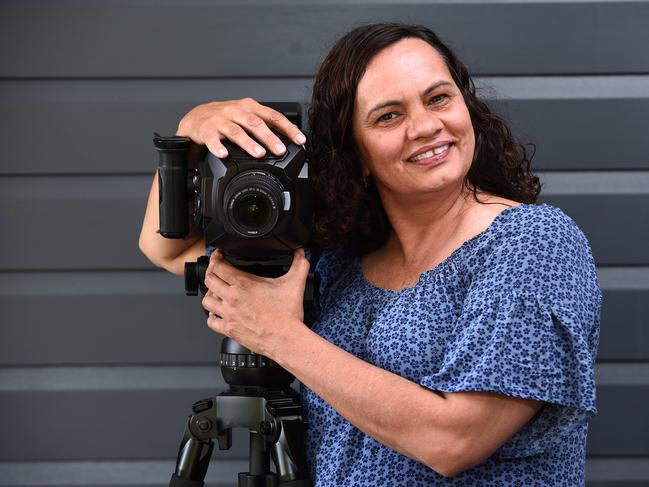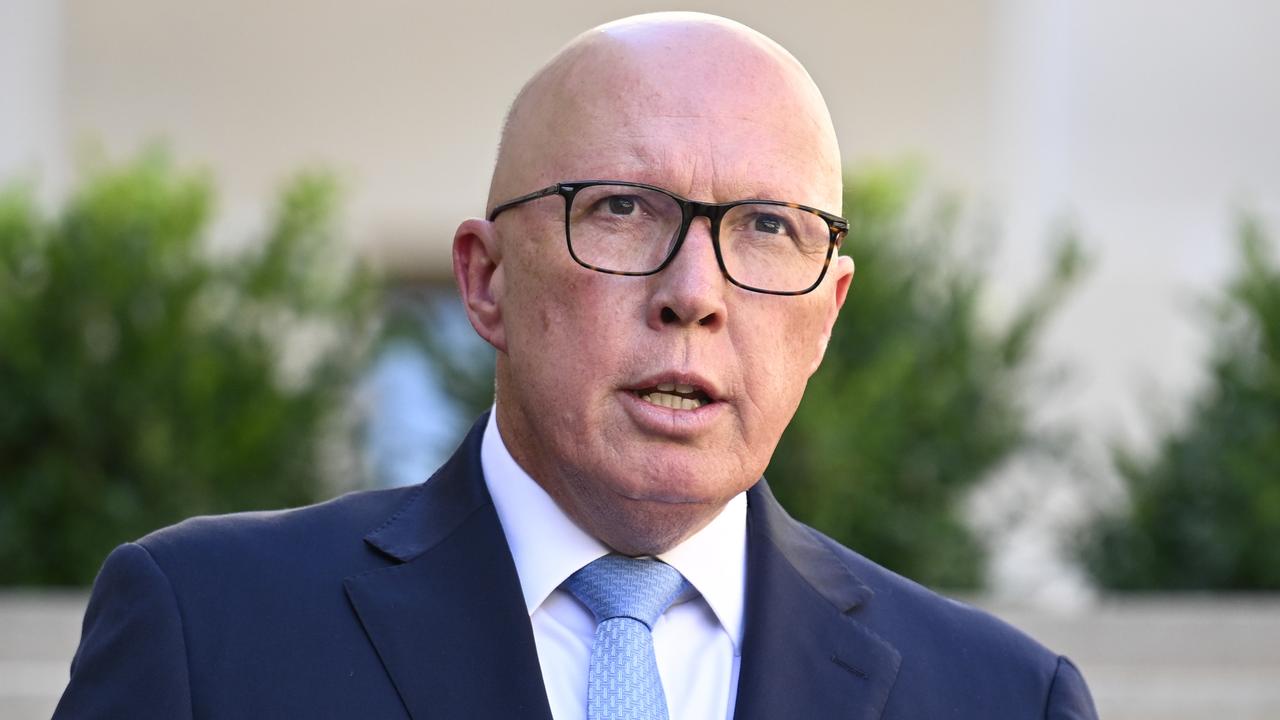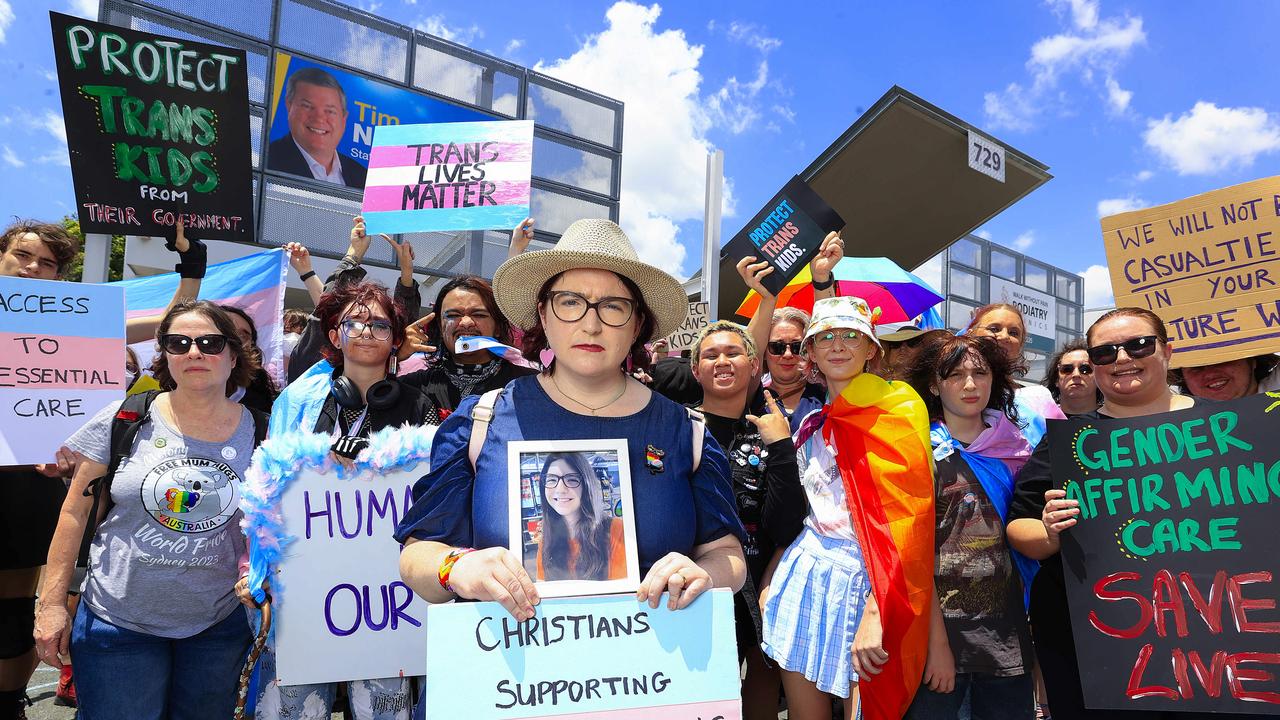Des Houghton on Janine Kelly: A triumph of the spirit over despair
Janine Kelly knew she had to flee to Queensland when her young daughter found her unconscious on the side of the road after a savage bashing. But this is not another depressing story about Indigenous Australians, writes Des Houghton. Just the opposite.

Des Houghton
Don't miss out on the headlines from Des Houghton. Followed categories will be added to My News.
Janine Kelly knew she had to flee Western Australia when her 12-year-old daughter found her unconscious on the side of the road after a savage bashing.
In despair, she and her daughter escaped to Queensland with little money and few possessions.
But this is not another depressing story about Indigenous Australians. Just the opposite.
Kelly has an inside flame that burns brightly. She bravely picked herself up and, thanks to the generosity of the Toowoomba community, she now has two university degrees and is working as a filmmaker.
She got into the University of Southern Queensland on an Indigenous access scholarship and later won a prized spot to study at Griffith University film school in Brisbane.
“We came to Queensland with no money, no clothes. Just a small bag of clothes for my daughter,” she said.
“We didn’t know when we left Perth what we were coming to.
“We ended up in Toowoomba in a women’s refuge there. We loved it. We thought, wow, it was like coming to heaven.
“We had nothing, yet we had our freedom. It was the greatest feeling in the world, and I began to think my life could have a purpose.
“My healing began in Toowoomba. It was like coming out of a war zone.
“And I mean a war zone. In the ’70s, when I was still in primary school, my aunty Nite was bashed over the head with a full beer bottle leaving her with brain damage. One side of her body was paralysed, and she couldn’t walk very well.”
Then another tragedy visited the family. Aunt Nita’s daughter had her throat slashed while she slept. Kelly was close to her aunty and the savagery left her and her daughter deeply depressed,
“I was very shocked. It told me a lot about the hatred of women by too many angry men. You cannot imagine the horror I felt,” Kelly said.

Kelly wondered: Will the violence towards Aboriginal women ever end? She also asked herself why the broader community and the state and federal governments so often turned a blind eye.
Kelly’s family was rocked by more brutality. Her 21-year-old niece was stabbed to death. That case is still playing out in the courts.
Kelly describes herself as a fugitive from violence. She won’t go back to Western Australia unless there is a powerful reason.
“I had to turn my back on Western Australia as part of my survival. I didn’t want to go back to the place that broke me,” she said.
“Toowoomba was a world away from where I was.
“To get out, I had to cut all ties with family in Western Australia. My parents have now passed away and I have very little contact with my brothers and sister.”
Kelly survived some bad relationships and has done a lot of soul searching about why violent men were attracted to her and, paradoxically, why she may have been attracted to them.
One of her partners was a whitefella who had spent years in jail for killing another man in a knife fight. She didn’t know about that when they hooked up.
“Another of my past partners choked me until I was unconscious. I must have been annoying him,” she said. “One day the domestic violence got so extreme I was suicidal. I called an ambulance and said ‘you need to take my daughter and I to hospital. I said, if you don’t, we won’t be alive anymore’.”
They were taken to Joondalup health campus hospital in Perth’s northern suburbs.
“We said please don’t turn us away.
“We waited a long time, and we met a social worker who saved our lives. I told her we had to leave WA. I told her we were frightened. We waited a couple of hours more. Then a community worker appeared and said, ‘This is your lucky day. I have tickets for you and your daughter on a QANTAS flight so you can get out of here’.”
Kelly views Western Australia as another planet. She is grateful for the help she and her daughter got from Queenslanders.
And her tertiary studies continue to lift her spirits. Now she is studying first year law subjects at Charles Darwin University, so she can be more useful to women trapped in toxic relationships and looking for a way out.
She wants to inspire others suffering domestic violence to do as she did.
“They can find a better way as I did, but they can’t go back,’’ Kelly said.
“I think it is good to empower yourself with the law.”
Her mission doesn’t stop there.
In the outback Queensland town of Blackall, that she now calls home, Kelly is teaching local women how to record their own life stories on film.
She also is making a film of her own life. Perhaps it will start with her great, great, great, great grandfather Brinte Brinte, who in colonial times was taken from his desert home and marched naked with a chain around his neck to Rottnest Island, which was a forced labour camp and prison from 1838 until 1931.
Brinte Brinte, who did not speak English, was his tribe’s storyteller.
Kelly wants to write the missing chapters.
“Victims of violence don’t usually get university degrees in Western Australia. They end up dead,” she said. “I got out at the right time. I listened to myself. I had to listen to myself and follow my survival instincts. My family couldn’t help. There were no other options but to leave, and never go back.’’
Janine Kelly is a 51-year-old Yamaji woman who was born in Subiaco and grew up in Nollamara, a northern Perth suburb.
She has four brothers and one sister.
“Drugs were all around me, even in our house,” she said.
“Police would raid our house regularly.”
She experienced direct and indirect racism at Balga High, a coeducational school in Perth.
“The racism was so bad I wagged a lot. In those days, the school community just accepted it.”
She looks back now and realises that racism was as ingrained in school life as it was in the wider community.
Aboriginal students at Balga High were somehow made to feel unwelcome by other students. But that was 30 years ago and she believes there have been positive changes.
She hastened to say that she had many whitefella friends who were not racists. Yet, even some of those nice white people tolerated racism in others.
Kelly said she did make white friends at school. But she wasn’t allowed to socialise with them outside the school.
“I got invited over to one girl’s house and when I got there the girl’s mother sent me away and told her daughter she was no longer allowed to play with me,’’ Kelly recalls.
She has hurt feelings that persist to this day. The hurt is written on her face.
To escape her partner and her dysfunctional family, she went to Port Headland and trained as a truck driver, taking her young daughter with her.
“I drove a truck the size of a small house. It even had verandahs,” she said.
Kelly hauled iron ore from BHP and Fortescue mines for four years and loved the work. But she quit her job when she realised it was not a good life for her daughter, who had to be left alone for long periods.
Kelly said she had a good relationship with her stepfather Owen. She did not meet her biological father Brian until she was a teenager. She liked him a lot.
“I felt no ill will towards him. He was a good man,” Kelly says.
“He was an apprentice carpenter, but he was the subject of racism and couldn’t bear to live in Western Australia any longer. So he took off to Darwin. I could understand why he left. He suffered racial abuse and slurs every day.
“Racism divides our good people.”
Her daughter is now 24 and pursuing her own life in Melbourne. They are no longer close.



